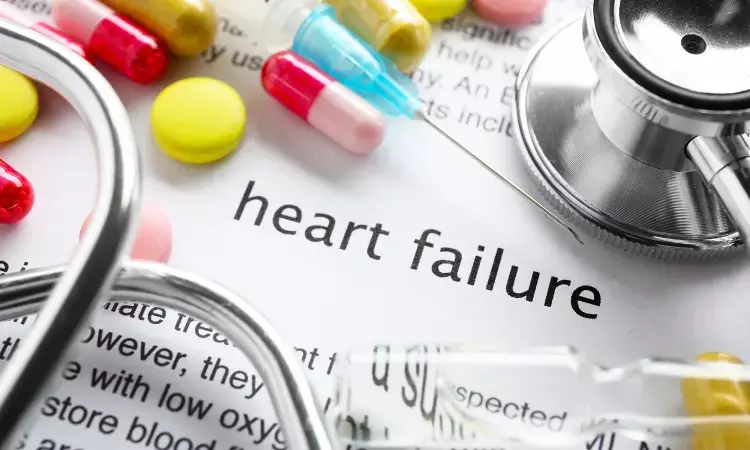- Home
- Medical news & Guidelines
- Anesthesiology
- Cardiology and CTVS
- Critical Care
- Dentistry
- Dermatology
- Diabetes and Endocrinology
- ENT
- Gastroenterology
- Medicine
- Nephrology
- Neurology
- Obstretics-Gynaecology
- Oncology
- Ophthalmology
- Orthopaedics
- Pediatrics-Neonatology
- Psychiatry
- Pulmonology
- Radiology
- Surgery
- Urology
- Laboratory Medicine
- Diet
- Nursing
- Paramedical
- Physiotherapy
- Health news
- Fact Check
- Bone Health Fact Check
- Brain Health Fact Check
- Cancer Related Fact Check
- Child Care Fact Check
- Dental and oral health fact check
- Diabetes and metabolic health fact check
- Diet and Nutrition Fact Check
- Eye and ENT Care Fact Check
- Fitness fact check
- Gut health fact check
- Heart health fact check
- Kidney health fact check
- Medical education fact check
- Men's health fact check
- Respiratory fact check
- Skin and hair care fact check
- Vaccine and Immunization fact check
- Women's health fact check
- AYUSH
- State News
- Andaman and Nicobar Islands
- Andhra Pradesh
- Arunachal Pradesh
- Assam
- Bihar
- Chandigarh
- Chattisgarh
- Dadra and Nagar Haveli
- Daman and Diu
- Delhi
- Goa
- Gujarat
- Haryana
- Himachal Pradesh
- Jammu & Kashmir
- Jharkhand
- Karnataka
- Kerala
- Ladakh
- Lakshadweep
- Madhya Pradesh
- Maharashtra
- Manipur
- Meghalaya
- Mizoram
- Nagaland
- Odisha
- Puducherry
- Punjab
- Rajasthan
- Sikkim
- Tamil Nadu
- Telangana
- Tripura
- Uttar Pradesh
- Uttrakhand
- West Bengal
- Medical Education
- Industry
Empagliflozin does not improve contractile reserve in heart failure: Data from Empire HF trial

Denmark: The addition of SGLT2 inhibitor empagliflozin to guideline-directed HF therapy for 12 weeks did not improve left ventricular (LV) contractile reserve in patients with heart failure (HF) and reduced ejection fraction, according to results from the prespecified sub-study of the Empire HF trial. The study appears in the American Heart Journal.
Sodium-glucose co-transporter-2 inhibitors are known to improve cardiac structure but most studies indicate no change in LV systolic function at rest. It is not known whether SGLT2 inhibitors improve LV contractile reserve. Jesper Jensen, Department of Cardiology, Herlev and Gentofte University Hospital, Herlev, Denmark, and colleagues, therefore, examined the effect of empagliflozin on LV contractile reserve in patients with heart failure and reduced ejection fraction.
The researchers conducted a Prespecified sub-study of the Empire HF trial -- double-blind, placebo-controlled, and randomized trial. Patients with LV ejection fraction (LVEF) ≤ 40% on guideline-directed HF therapy were included. They were randomized in a ratio of 1:1 to receive empagliflozin 10 mg or placebo for 12 weeks. Low dose dobutamine stress echocardiography was used to assess the treatment effect on contractile reserve.
A total of 120 patients were included. The mean age was 68 years, 83% were male, and the mean LVEF was 38 (SD 10) %. Respectively 60 (100%) and 59 (98%) patients in the empagliflozin and placebo groups completed stress echocardiography.
Salient findings of the study include:
- The researchers observed no statistically significant effect of empagliflozin for the contractile reserve assessed by LV-GLS (adjusted mean absolute change, empagliflozin vs placebo, 0.7%) or LVEF (adjusted mean absolute change, empagliflozin vs placebo, 2.2%) from baseline to 12 weeks.
- LV-GLS contractile reserve was associated with accelerometer-measured daily activity level (coefficient –24 accelerometer counts).
"The addition of empagliflozin 10 mg once daily for 12 weeks to guideline-directed HF therapy did not substantially improve LV contractile reserve in patients with stable, chronic HFrEF as compared to placebo," wrote the authors.
"Future studies should focus on small changes in the metabolism and contractility of the myocardium with other imaging modalities during treatment with SGLT2 inhibitors," they concluded.
Reference:
The study titled, "The effect of empagliflozin on contractile reserve in heart failure: Prespecified sub-study of a randomized, double-blind, and placebo-controlled trial," was published in the American Heart Journal.
Dr Kamal Kant Kohli-MBBS, DTCD- a chest specialist with more than 30 years of practice and a flair for writing clinical articles, Dr Kamal Kant Kohli joined Medical Dialogues as a Chief Editor of Medical News. Besides writing articles, as an editor, he proofreads and verifies all the medical content published on Medical Dialogues including those coming from journals, studies,medical conferences,guidelines etc. Email: drkohli@medicaldialogues.in. Contact no. 011-43720751


